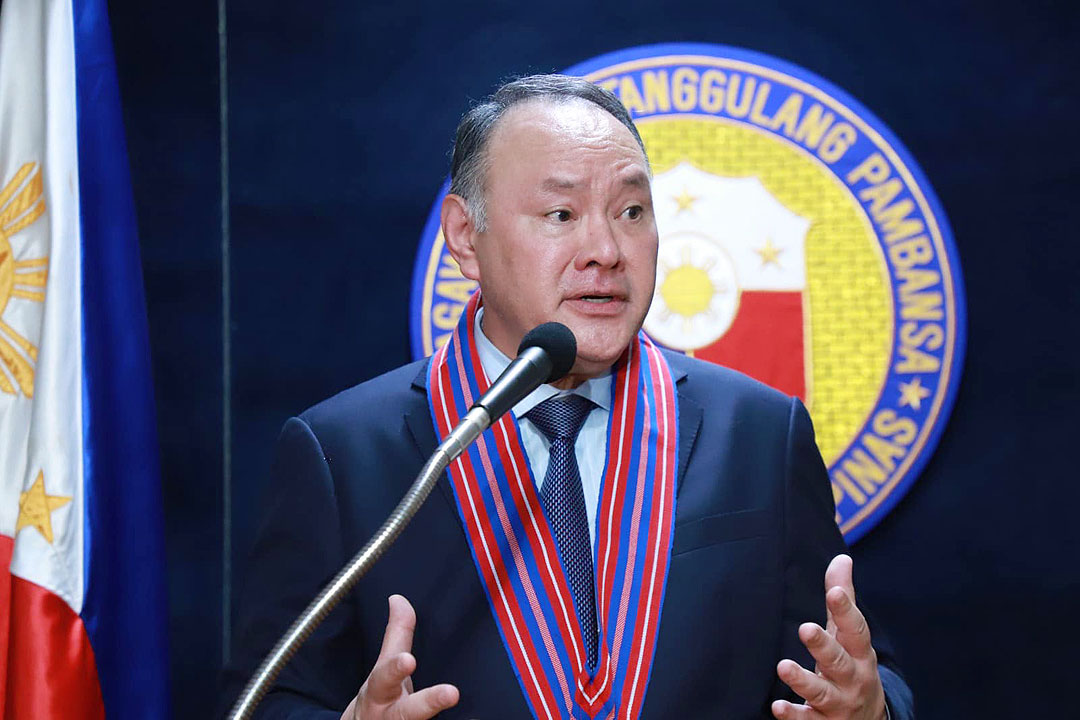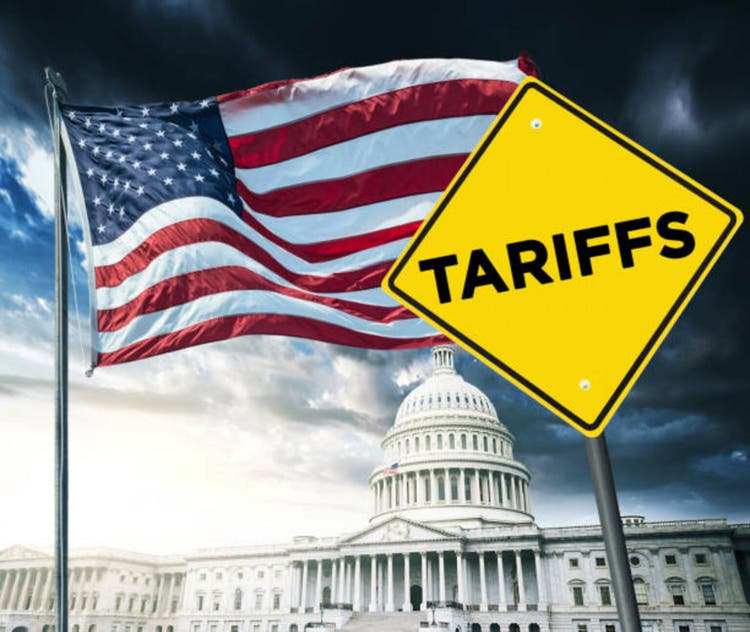 DND
DNDBy Kenneth Christiane L. Basilio, Reporter
CHINA’S aggressiveness in the Indo-Pacific is rooted in long-standing strategic ambitions independent of any US policy, and the region’s challenges stem from Beijing’s own expansionist agenda, the Philippines’ top defense official said on Wednesday.
The Philippines and China have had a series of run-ins and heated exchanges in the busy waterway of the South China Sea over the past two years, including an incident in June last year when a Philippine sailor lost a finger.
“The aggressiveness of China has been several years in the making,” Defense Secretary Gilberto C. Teodoro, Jr. said in an interview at the Reuters NEXT Asia summit in Singapore.
“China’s design for the region does not depend on any American leader,” Mr. Teodoro said, replying to a query whether US President Donald J. Trump’s style and stance had served as a catalyst for China’s actions.
“It depends on its own plan of action in the region, its own expansionist activities, its own need to control the area.”
While acknowledging that US policies influence regional dynamics, Mr. Teodoro said China’s actions were “pre-determined” by its leadership, regardless of who was in power in Washington.
Despite rising tension in the major regional flashpoint of the South China Sea, Mr. Teodoro dismissed fears that conflict was on the horizon.
“The prospect of war is not imminent,” he added. “I believe it is remote, but that would entirely depend upon the internal conditions of China.”
China’s embassy in Manila did not immediately respond to a request for comment.
China claims almost the entire South China Sea, despite overlapping claims by Brunei, Indonesia, Malaysia, the Philippines, Vietnam and Taiwan.
Mr. Teodoro said Manila was focused on deterrence, backed by diplomacy.
“You can’t have diplomacy without a credible deterrent force, and what we are doing is merely putting a stop, as best as we can, to the illegal incursions of China, which I do not think any country in the world supports,” he said.
To boost its external defense capabilities, the Philippines is investing billions of dollars to modernize its military, and part of that plan is to acquire multi-role fighter jets.
While submarines were on the wish list, Mr. Teodoro said they were not a priority at the moment, with the focus on weaponizing and building infrastructure to maintain current platforms.
Mr. Teodoro rejected the notion that the Association of Southeast Asian Nations (ASEAN) had failed to respond to China’s actions, given that the 10-nation Southeast Asian bloc has been working on a code of conduct with Beijing to avert confrontations in the South China Sea.
“It is obvious that ASEAN countries are wary and worried about China’s activities. If not, there would be no call for a code of conduct in the South China Sea.”
“It doesn’t take a rocket scientist to be very concerned about what is happening.”
Since Philippine President Ferdinand R. Marcos, Jr. took office in 2022, Manila has grown increasingly vocal in its opposition to China’s actions in the South China Sea, while significantly strengthening ties with traditional ally the United States, and like-minded partners, such as Australia and Japan.
Mr. Teodoro believed it would be difficult for any future leader to reverse current policy because it has strong public backing. President Marcos’ single six-year term ends in 2028.
“I feel that any leader in the future, in the face of what China is doing, and in the face of public opinion… and there is a distrust, not of China, but of the Chinese government in what they are doing. So, it would be hard for any leader to reshape that narrative,” he said.
DEEPER PHL-JAPAN TIES
The remarks followed a meeting between senior military officials from the Philippines and Japan on Tuesday, where they reinforced bilateral defense cooperation, as Manila weighs a proposal from Tokyo to transfer used destroyer ships seen as reinforcing the Southeast Asian nation’s maritime security capabilities.
In a statement on Wednesday, the Philippine military said that Japan Maritime Self-Defense Force Rear Admiral Ikeuchi Izuru met with Armed Forces of the Philippines (AFP) Vice-Chief-of-Staff Lieutenant General Jimmy D. Larida in Manila for a courtesy visit.
The military officials discussed “mutual concerns” over persisting “regional maritime challenges,” the Philippine military said, as both countries grapple with China’s increasing assertiveness in the South China Sea.
They also talked about possible joint military exercises and exchanges in the future, it added.
“The visit served as a platform to reaffirm both nations’ shared commitment to maintaining peace, stability, and freedom of navigation in the Indo-Pacific region,” the AFP said.
Like the Philippines, Japan has been embroiled in a dispute with China over the Senkaku Islands, which lies close to key shipping lanes and is believed to be rich in marine resources.
Mr. Izuru’s visit to Manila highlights the deepening relations between the Philippines and Japan’s forces and underscores their need to enhance military operability amid “evolving security dynamics” in the South China Sea region, the AFP said.
The Japanese navy official’s visit came on the heels of Japan’s offer to transfer its used Abukuma-class destroyers to the Philippines, helping shore up Manila’s maritime security capabilities amid China’s persistent presence at disputed reefs and atolls in the South China Sea.
The Philippine Navy on Tuesday said that it will send a six-man team to Japan in August to inspect the Japanese destroyer ships being offered. Mr. Teodoro has said that Manila is factoring in the costs of integrating the warships to its fleet and system interoperability.
SCS MEASURES
Meanwhile, a coalition of Philippine lawmakers filed multiple proposals at the House of Representatives on Wednesday aimed at bolstering the country’s claims in the contested South China Sea (SCS).
Among the raft of measures filed include a resolution urging Manila’s Department of Interior and Local Government to reassess sister-city and province agreements with China, and a bill seeking to integrate lessons on the Philippines’ claim in the disputed waterbody in the education curriculum.
“These measures serve as a reminder that we have not forgotten the West Philippine Sea (WPS),” Party-list Rep. Jose Manuel “Chel” I. Diokno told BusinessWorld in a Viber message, using the Philippine name for parts of the waterbody falling within Manila’s 200-nautical mile exclusive economic zone.
Filed by the so-called “West Philippine Sea bloc,” the grouping of six congressmen said they filed the measures to help reinforce Manila’s claims in the disputed waterway.
House Resolution No. 39 calls for a government investigation into sister-city agreements between the Philippines and China, with a view to terminating those deemed detrimental to Philippine interests.
The Philippines has 29 such agreements with China, according to the resolution.
“We should reassess sister-city agreements with certain Chinese cities to ensure that no undue interference or influence is taking place at the local level,” said Mr. Diokno.
Meanwhile, House Bill No. 1625 aims to enhance public awareness of the Philippines’ claims in the South China Sea by integrating education content on the country’s exclusive economic zone, sovereign rights and entitlements, while also including the impact of China’s encroachment on the disputed waterway, according to a copy of the measure shared to reporters.
“This fight for our sovereignty is not just limited to the seas. It also extends into our schools, our homes and into the halls of Congress,” Party-list Rep. Percival V. Cendaña told BusinessWorld in a Viber message.
“This is a battle for the hearts and minds of our citizens and future generations.”
The Chinese Embassy in Manila did not immediately reply to a Viber message seeking comment.
The lawmakers also filed House Bill No. 1626, which seeks to declare July 12 — the day the Permanent Court of Arbitration voided China’s expansive claims in the South China Sea — as a special working holiday.
“July 12 is not just a date. Commemorating it as National WPS Victory Day is a reminder that international law is on our side,” Party-list Rep. Leila M. de Lima said in a statement, using the abbreviation for the Philippines’ exclusive economic zone. — with Reuters

 3 hours ago
1
3 hours ago
1



















 English (US) ·
English (US) ·